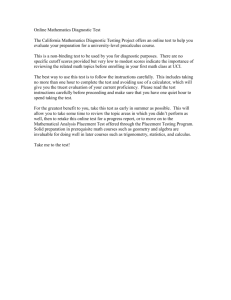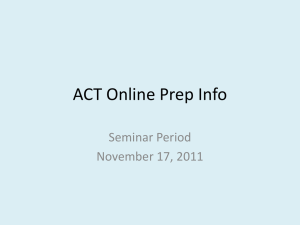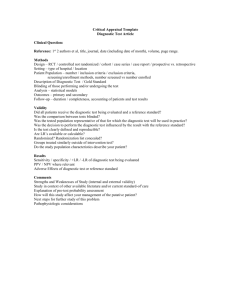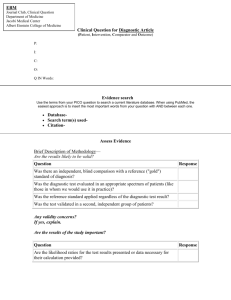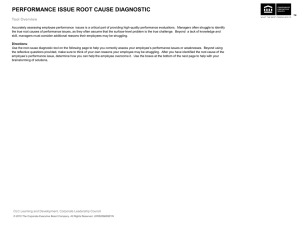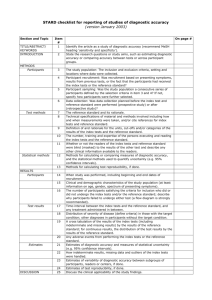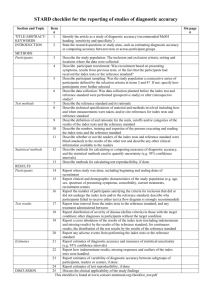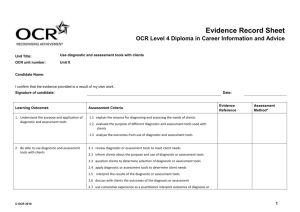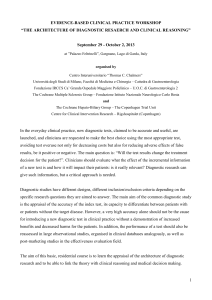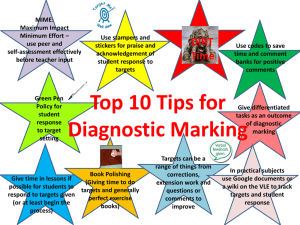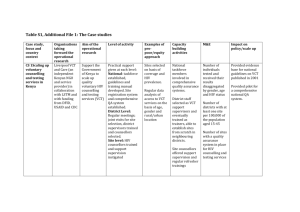Balancing the costs and quality of different memory service models
advertisement
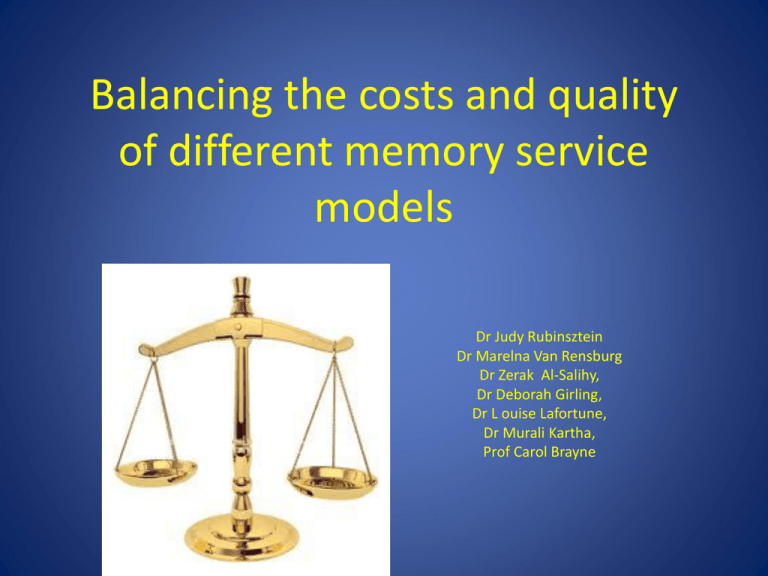
Balancing the costs and quality of different memory service models Dr Judy Rubinsztein Dr Marelna Van Rensburg Dr Zerak Al-Salihy, Dr Deborah Girling, Dr L ouise Lafortune, Dr Murali Kartha, Prof Carol Brayne Aims • Evaluate average unit cost to secondary care for patients presenting with memory problems in a Memory Clinic based service (Gp A) and a Traditional ( CMHT based) service ( Gp B). • Evaluate quality of diagnostic service offered to patients and carers. Methods • Adapted Client Service Receipt Inventory (CSRI) • Questionnaire about quality of diagnostic service provided, devised for study Unit Costs for Health and Social Care (2011) Service Consultant Psychiatrist Registrar Ass Sp CMHT ( OP) Psychologist CT/ MRI Psych tests Mileage Unit Cost (with on costs) £162 £73 £131 £44 £60 £121/£198 £9 54p/mile Quality Questionnaire: Diagnostic Assessment Response times for assessment Dementia blood screen Pre-diagnostic counselling Examination of cognition, behaviour, functioning Advanced planning discussions Assessment of risk Typical pathway and costs for Gp A DV screen/assign Pre-Dx Counselling Dx Post Dx Office Advice Group B DV (medical) • No F/U DV (medical) • Assign • DVs for post Dx advice, team Demographics A (n=33) B (n=33) Comments Age (mean) 80 84 0.03 (Significant) Min-Max 65-92 66-97 Females 58% 67% MMSE (median) 24 25 NS (n=32 both groups) ACE-R 67 - (Gp B, 9 done) Education 15 15 Not recorded 4 in Gp A, 20 in Gp B Diagnoses (NS) 60 50 40 30 A (%) B (%) 20 10 0 AD VD LBD MCI Depression Other Dementia Blood Screen from GP Yes Group A Group B 100% 73% Significantly more in Group A Fisher Exact P=0.02 Pre-Diagnostic Counselling Prediagnostic Counselling Gp A GP B Yes 97% 6% Highly Significant Difference on Chi Sq Days to be seen Group A Group B Mean days ( SE) 25 ( 2.6) 20 (3.4) t=1.21 P=0.23 (NS) Diagnostic Assessment: informal Evidence of informal assessment ( NS differences) in nearly all of patients including assessments of 1) Functioning 2) Behaviour 3) Global severity 4) Depression 5) Carer assessment : Gp A> Gp B Diagnostic assessment (formal scales) Formal assessment Gp A> Gp B • Functioning (P<0.0001) ( BDI) • Behaviour (P<0.0001) ( CBI) • Global (P<0.0001) (HoNos, EQ5D) Brain Scans Risk Assessment Documented in Fisher Exact, P =0.02 Gp A Gp B 94% 67% Post Diagnostic Advice Signposting 67% 49% Third sector 70% 24% * Advance planning discussions 55% 45% Medications Prescribed (65%) Diagnostic info 100% of letters to GP had diagnosis Copying of letters to Pts/ Carers Group A 88% Group B 42% Total Costs P o u n d s Group A Group B Costs by Type (Means) £300 £250 Group A £200 Group B £150 £100 £50 £0 Direct Office Travel time Mileage MDT Scans DrugsPsych Tests Conclusions • Costs less for Gp A than Gp B but not significantly so. • BUT, Gp A (memory clinic service) can offer a higher quality service with more specialist and multi-disciplinary care. Outcome of Study • Valuable input to both services re cost and quality of service • Developed useful cost and quality tools for evaluating a memory service • Cost data may be useful to Unit Costs for Health and Social Care compendium • Planning an academic paper! What did I learn? • In real world, services change and develop. • Neither services are the same as when project done! • Involving staff with data collection/discussion at both ends critical to success. • Similar stakeholder info re perceived quality of services would be useful. Acknowledgements • • • • • • • • *Dr Judy Rubinsztein ¥Dr Marelna Van Rensburg **Dr Zerak Al-Salihy, ¥ D Girling, *Dr L Lafortune *Dr Murali Kartha, *Prof Carol Brayne *Receive support from NIHR CLAHRC, University of Cambridge, • ¥ CPFT= Cambridge and Peterborough FT • **Norfolk and Suffolk FT Acknowledgements • Sam Norton (statistician, CLAHRC) • John Battersby ( ERPHO, advice on demographic matching) • Multidisciplinary staff in both Groups A and B
